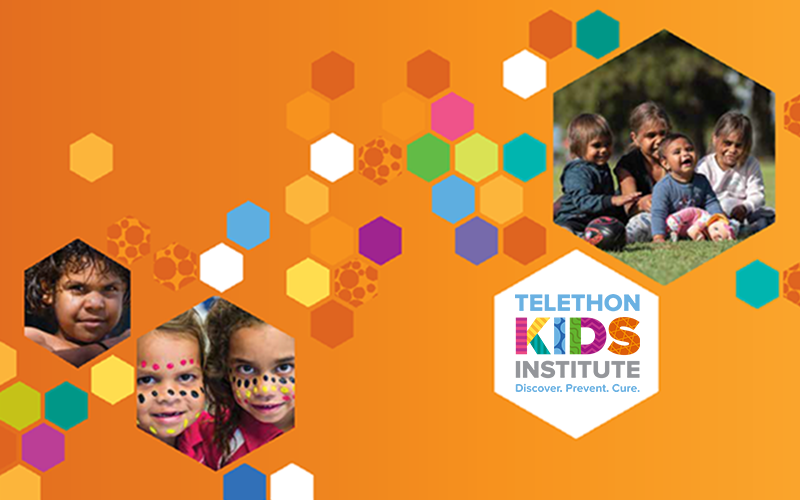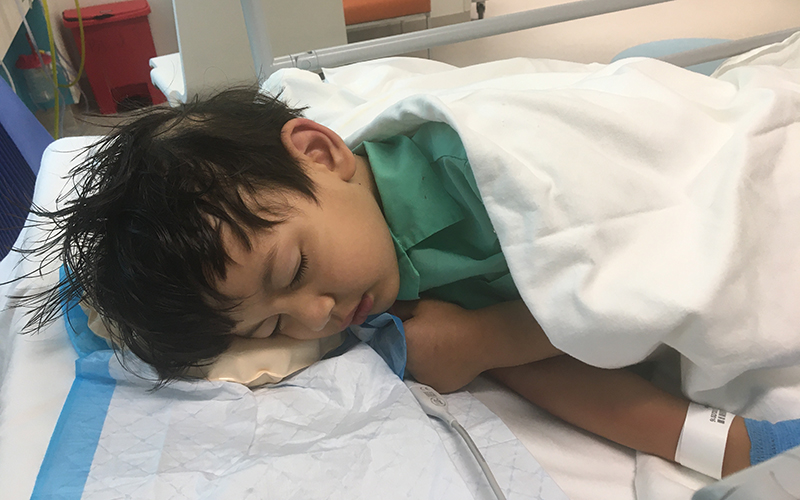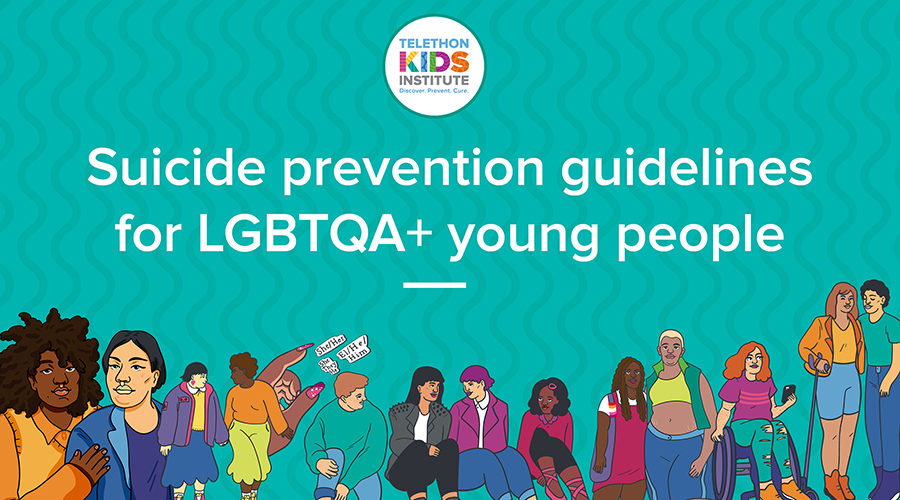Search

News & Events
The Kids Research Institute Australia says yes to "The Voice"The Kids Research Institute Australia gives its full support for a First Nations Voice to Parliament to be enshrined in Australia’s constitution.

News & Events
Strep A hits Perth family twice in one yearCharlie, 6, has ended up in hospital twice with invasive Strep A infection over his short lifetime – the first time when just three years old.

News & Events
Suicide prevention guidelines to drive better services for LGBTQA+ young peopleResearchers have developed Australia’s first comprehensive guidelines for clinical and community services supporting LGBTQA+ youth.

News & Events
Sophisticated modelling shows WA’s Omicron outbreak still has months to runWestern Australia’s Omicron outbreak is far from over, with new modelling showing the number of total infections is only at its half-way point.
Kaal is a proud Noongar boy, he loves playing football, but this season Kaal is about to tackle a new and unexpected challenge… eczema.
Research
Describing skin health and disease in urban-living Aboriginal children: co-design, development and feasibility testing of the Koolungar Moorditj Healthy Skin pilot projectIndigenous children in colonised nations experience high rates of health disparities linked to historical trauma resulting from displacement and dispossession, as well as ongoing systemic racism. Skin infections and their complications are one such health inequity, with the highest global burden described in remote-living Australian Aboriginal and/or Torres Strait Islander (hereafter respectfully referred to as Aboriginal) children. Yet despite increasing urbanisation, little is known about the skin infection burden for urban-living Aboriginal children.
Research
Psychosocial and neurocognitive correlates of suicidal thoughts and behaviours amongst siblings of persons with and without neurodevelopmental conditionsSiblings of individuals with neurodevelopmental conditions (NDCs) have greater incidence of neuropsychiatric diagnoses and neurocognitive difficulties compared to siblings of persons without NDCs. Despite suicidality being labelled a global health crisis (WHO, 2014) and NDC siblings experiencing risk factors implicated in suicidality, no previous studies examined suicidality amongst adolescent and young adult siblings of persons with NDCs. Our study aimed to bridge this gap.
Research
COVID-19 monitoring with sparse sampling of sewered and non-sewered wastewater in urban and rural communitiesEquitable SARS-CoV-2 surveillance in low-resource communities lacking centralized sewers is critical as wastewater-based epidemiology (WBE) progresses. However, large-scale studies on SARS-CoV-2 detection in wastewater from low-and middle-income countries is limited because of economic and technical reasons.
Research
Continuous glucose monitoring has an increasing role in pre-symptomatic type 1 diabetes: Advantages, limitations, and comparisons with laboratory-based testingType 1 diabetes is well-recognised as a continuum heralded by the development of islet autoantibodies, progression to islet autoimmunity causing beta cell destruction, culminating in insulin deficiency and clinical disease. Abnormalities of glucose homeostasis are known to exist well before the onset of typical symptoms.
Research
A randomized, double-blind placebo-control study assessing the protective efficacy of an odour-based 'push-pull' malaria vector control strategy in reducing human-vector contactNovel malaria vector control strategies targeting the odour-orientation of mosquitoes during host-seeking, such as 'attract-and-kill' or 'push-and-pull', have been suggested as complementary tools to indoor residual spraying and long-lasting insecticidal nets. These would be particularly beneficial if they can target vectors in the peri-domestic space where people are unprotected by traditional interventions.
